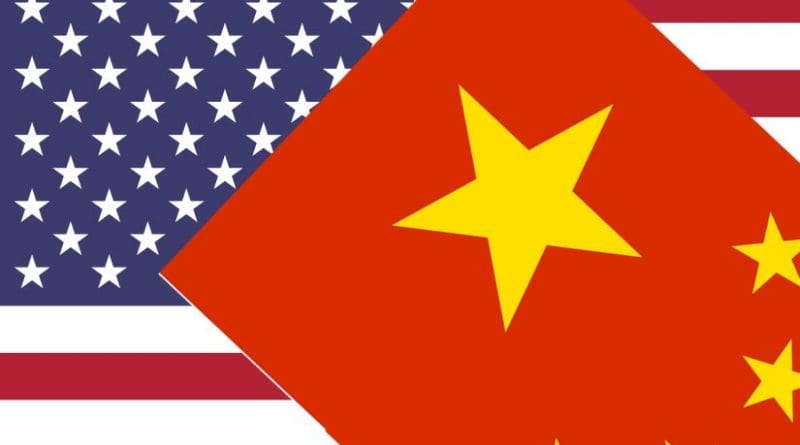US-China Cyber War Dismissed By State Department – OpEd
By Jim Kouri
The likelihood of a cyber war between the United States and China was dismissed by U.S. State Department officials in a press statement issued on Wednesday. The State Department is calling for the building bilateral trust to avoid such a troubling scenario.
In early 2011, there were several reports that the Chinese government had launched cyber attacks against the U.S. with allegations of Chinese intrusions of the web sites of U.S. military contractors.
There were also allegations that China illegal penetrated the Google e-mail accounts of several high-level U.S. officials. Government officials in China has denied the allegations of government involvement, but did not comment further.
While U.S. security officials confirmed there were cyber attacks, they stated that it was practically impossible to discover from where the attackers emanated.
The Obama White House is said to be deeply troubled about impending cyber attacks and the U.S. Armed Services will consider cyber attacks as an act of war and are prepared to use force, according to former Secretary of Defense Robert Gates in June.
Prior to the U.S.-led bombing missions in Libya last March, the Obama administration had brainstormed the use of cyber attacks to dismantle the Moamar Khadhafi’s air-defense system, which posed a danger to U.S. and NATO fighter jets and bombers.
The operation called for penetration of the Libyan government’s computer networks’ firewalls in order to hamper or terminate military communications links and prevent early-warning radar from gathering information and relaying it to missile batteries firing at coalition warplanes.
The plan was scrapped due to President Barack Obama’s fear of provoking other renegade nations to carry out such offensives against the United States.
Vice-Foreign Minister Cui Tiankai told foreign reporters ahead of a meeting with U.S. officials in Hawaii in June that China and the U.S. might suffer from cyber attacks, but they were in no way directed by either government, according to the China Daily newspaper.
Both countries were in fact already discussing the problem of hacking during their regular strategic consultations, Cui is quoted as saying.
“The international community ought to come up with some rules to prevent this misuse of advanced technology,” Cui told the China Daily.
Cyberspace is growing in strategic importance as other nations increase their capabilities, the chief of U.S. Strategic Command told Defense Writers Group reporters yesterday.
A recent example of cyber threats facing the Defense Department is a computer virus that affected a stand-alone ground control system for the nation’s drone fleet based at Nevada’s Creech Air Force Base, according to Stratcom commander Air Force Gen. C. Robert Kehler.
Stratcom systems detected the virus, quarantined it, and it had little to no impact on operations, he noted. Both accidental and targeted attacks on DOD networks are on the rise, he said.
“The trend is that we see multiple, deliberate attempts to try to get into our networks almost daily,” he said.
Based at Offutt Air Force Base near Omaha, Nebraska, Stratcom serves as U.S. Cyber Command’s headquarters, and also oversees the nation’s missile defense, and global strike and space operations, as well as combating weapons of mass destruction.

